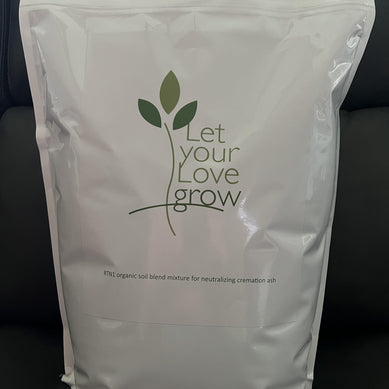Nourishing Your Heart: Coping with Grief Through Healthy Choices
Grief is a profound emotional reaction to loss and affects every aspect of our lives, including our physical and mental well-being. Understanding how grief impacts our health is essential in developing strategies to cope effectively and promote healing. By nurturing our bodies and minds through healthy choices, we can navigate the complex grief journey more resiliently.
Understanding Grief and Its Impact on Health
Grief is a natural part of the human condition, encompassing a range of emotions such as sadness, anger, and confusion. Beyond its emotional weight, grief can manifest physically, leading to various health issues that might complicate recovery. We can take proactive steps toward nurturing our well-being during challenging times by understanding how grief influences our health.
The Physical Symptoms of Grief
Grief is a powerful feeling, so much so that it affects your body as much as it does your mind. The harmful symptoms below necessitate introducing a few new habits into your lifestyle.
Digestive Issues
Grief can wreak havoc on our digestive systems, leading to symptoms such as nausea, stomach pain, and changes in appetite. The stress and anxiety accompanying grief can also alter gut function, making it challenging to maintain regular eating patterns. Addressing these digestive disturbances is critical, as a well-balanced diet is vital for physical and emotional health.
Sleep Disturbances
Many people grieving a loss experience difficulty with sleep, ranging from insomnia to excessive sleeping. The emotional turmoil of grief can lead to racing thoughts and heightened anxiety, preventing restful sleep.
Fatigue and Low Energy
Feelings of fatigue and low energy are expected during the grieving process, as emotional strain often draws on our physical reserves. This fatigue can impede daily functioning, disrupt routines, and even impact your professional life.
Acknowledging these feelings and introducing healthy coping mechanisms can help sustain our energy levels during this challenging time.
Nutritional Strategies for Coping with Grief
Following a routine is essential during grief, giving you structure and pushing you forward. Developing healthy habits is just as important. Doing so supports your mental and physical health at a time when both can be at an all-time low. While you may have little effort while grieving, spending a little on proper nutrition can help you surmount this obstacle.
Importance of Mindful Eating
Mindful eating is essential in navigating grief, encouraging us to be present and attentive during meals. Focusing on flavors, textures, and sensations can foster a more positive relationship with nourishment. This practice can also help counteract emotional eating, enabling us to make healthier food choices that support our well-being.
Foods that Promote Emotional Well-Being
When it comes to grief, don't discount the effects of food and drink on your mental health. Incorporating certain foods into our diets can significantly enhance emotional health during grief. Nutrient-dense foods like leafy greens, fruits, whole grains, and nuts can support brain function and regulate mood. A few specific examples include blueberries, which are rich in antioxidants, and avocados, known for their healthy fats that contribute to brain health.
Incorporating Omega-3 Fatty Acids
Omega-3 fatty acids are crucial for emotional balance and can be particularly beneficial during grief. Found in fatty fish like salmon, walnuts, and flaxseeds, these healthy fats can support brain function and reduce feelings of depression and anxiety. Making a conscious effort to include omega-3-rich foods in our diets can promote emotional resilience.
The Importance of Hydration
Adequate hydration helps maintain overall health, especially whilst coping with grief. Dehydration leads to fatigue, confusion, and irritability, exacerbating feelings of sadness and despair. Consuming enough water throughout the day can help clear our minds and enhance our physical well-being.
The Role of Exercise in Grieving
It's easy to get stuck inside your head when grieving. To get grounded, stop thinking for a little while, get out there, and move.
Types of Exercise to Consider
Exercise is a powerful tool for managing grief, with various forms welcoming differing needs and preferences. Whether through a brisk walk, gentle yoga, or engaging in team sports, incorporating physical activity into our daily routines can be highly beneficial. Finding an enjoyable exercise type can turn movement into a healing practice rather than a chore.
Benefits of Physical Activity on Mood
Regular physical activity is linked to improved mood and emotional well-being, making it essential to coping with grief. Exercise releases endorphins, often called "feel-good hormones," which alleviate feelings of sadness and distract from emotional pain. By prioritizing movement, we enhance our physical health and open pathways to emotional recovery.
Mindfulness and Meditation
Incorporating mindfulness and meditation into our self-care routines can profoundly enhance our coping mechanisms during periods of grief. Simple deep-breathing exercises or guided meditation sessions can provide moments of peace amidst the chaos of grief, encouraging reflection and healing.
Conclusion: Integrating Healthy Choices into Daily Life
Navigating the journey of grief is undeniably challenging, but prioritizing a healthy lifestyle can foster resilience and support us through the process. By understanding the impact of grief on our mind and body, we can implement nutritional strategies, exercise routines, and mindfulness techniques that honor our feelings. Integrating these healthy choices into our daily lives not only helps us cope with the emotional weight of loss, but also empowers us to rebuild a sense of balance and well-being.










